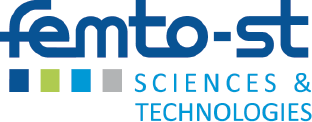Innovation through
Physics and Engineering
Innovation through Physics and Engineering
Innovation through
Physics and Engineering
Innovation through Physics and Engineering

The ELISE Master’s program (Electronics, Open-Source Tools for Instrumentation and Embedded Systems), part of the EEA (Electrical Engineering and Automation) degree, is a specialized training course in digital electronics, embedded systems, and instrumentation.
This program leads to a Master’s degree (bac+5) in electronics, preparing graduates for roles as design engineers or R&D specialists in digital electronics and instrumentation within companies in sectors such as transportation, energy, healthcare, manufacturing, high-performance computing, and defense. With hands-on experience closely tied to the research activities of the FEMTO-ST Institute, the program also introduces students to academic research support careers and provides a pathway to doctoral studies.
The curriculum emphasizes the use of open-source software and hardware tools (Linux, Python, Raspberry Pi, Buildroot, KiCAD, etc.), fostering in-depth learning to address future challenges in digital electronics and instrumentation.
A significant portion of the coursework involves practical sessions (~50%), supplemented by opportunities to apply knowledge through cross-disciplinary projects each semester, aligned with research laboratory themes. Students also undertake a six-month internship in a company or research lab during the second year. The Master’s program is available as a full-time course or through work-study programs over the two years.
We seek motivated applicants with a Bachelor’s degree in electronics, possessing experience in analog electronics (circuits, instrumentation, etc.), digital electronics (C programming, microcontrollers), signal processing, and a keen interest in open-source tools (e.g., participation in open-source projects, code on GitHub). Proficiency in technical English is required, as courses are taught in English.
In addition to skills that prepare students for professional life,
the Master’s program develops advanced disciplinary competencies in the field of digital electronics:
The program also covers instrumentation and signal processing:
These disciplinary skills are built on technical expertise taught through the use of open-source tools: advanced microcontroller programming (kernel development), Unix (Linux) administration, FPGA hardware definition using VHDL, networking, radiofrequency communication, information transmission, antenna design, electronic circuit design, instrument control, electronic noise analysis, digital/analog conversion, and signal and information processing, with and without artificial intelligence.
The ELISE master’s program takes place over 2 academic years divided into 4 semesters. Each semester corresponds to an accreditation of 30 ECTS, which leads to a total at the end of 120 ECTS. The program has an extensive international flavor, with all courses taught in English. The teaching staff are highly qualified researchers with international recognition.



























Internship – 30 ECTS


The program targets careers such as:
A degree equivalent to or higher than a Bachelor’s degree with a background knowledge in systems control and Digital Electronics. Courses waivers can be given depending on your former undergraduate program content.
Contact: Franck Chollet